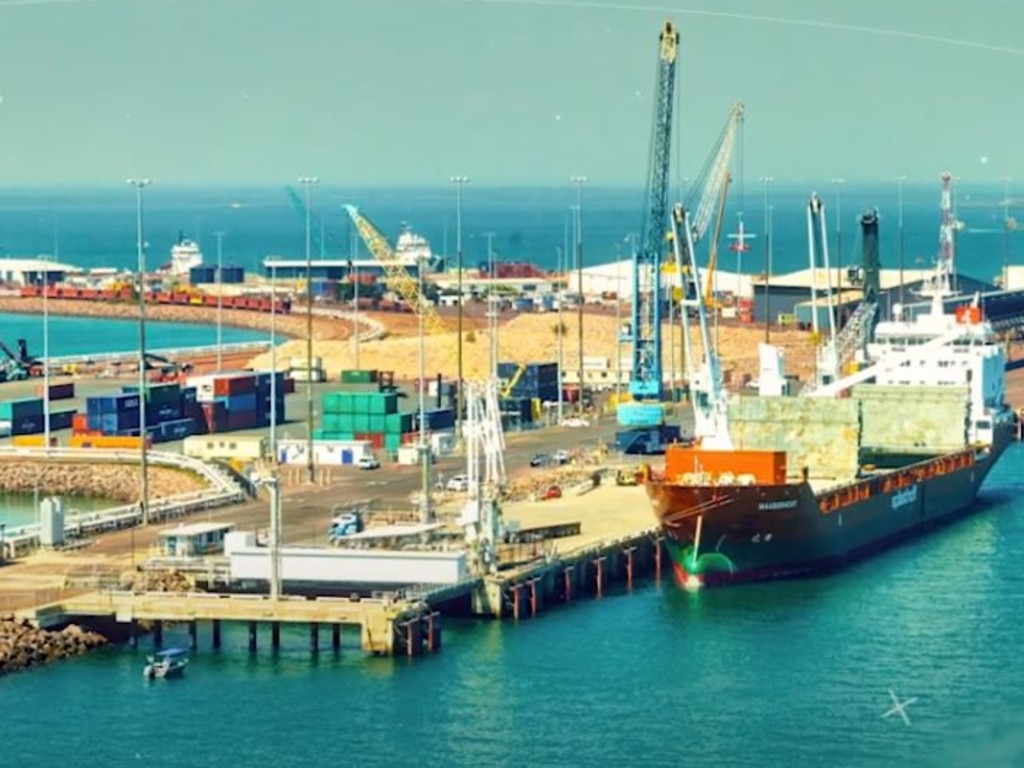Security not at risk at Darwin port

“When we were subsequently advised that the sale was to Chinese interests, we examined the possible security implications. Within Defence, that involved the three services. It involved the Australian Signals Directorate, the Defence security agency and the strategic policy area of defence. No part of Defence had a concern from a security perspective in respect of the sale. The navy’s interest was overwhelmingly the question of access, not the question of ownership, given that it is a commercial port, not a navy base.”
He needn’t have worried about any licence; our navy can enter any Australian port without any permissions and foreign navies cannot enter without government permission. The local harbour master has no authority to stop our people and every authority to stop others.
Richardson went on: “We can only look at this in terms of our interests. Does it raise national security concerns for us as a department? It does not. If other people have other issues about foreign ownership of whatever, that is not an issue that concerns us unless it impinges on our interests and responsibilities.”
The lease is for those parts of the port involved with international commercial shipping. It doesn’t include Stokes Hill Wharf (which houses Customs), or the fishing and coastal shipping facilities around Frances Bay, or the naval base. We can take back all of the port in a crisis. It must operate in accordance with environmental legislation and, monitored by the Australian Maritime Safety Authority, it must comply with all the requirements of the International Ship and Port Facility Security Code. We have aerial surveillance.
As Mark Binskin, chief of the Defence Force at the time, told the 2015 Senate hearing: “If (ship) movements are the issue, I can sit at the fish and chip shop on the wharf at the moment in Darwin and watch ships come and go, regardless of who owns it.”
So what is the problem? Former Liberal trade minister Andrew Robb became a high-level economic consultant to Shandong Landbridge in August 2016 (or perhaps earlier) and the Turnbull government found no problem with that. As recently as last September, Linda Reynolds as defence minister found “no current strategic issues”. Richardson has labelled such concerns as absurd and “alarmist nonsense”. Yet we hear in recent days that Defence is having another look at the matter.
Every day we read and hear about Chinese aggression. The militarisation of disputed atolls in the South China Sea certainly qualifies, albeit that it has nothing to do with Australia. (Whatever our thoughts about China’s treatment of Uighurs and the imposition of new laws in Hong Kong they are not Chinese aggression; they are internal matters, just as #MeToo, gun culture, money politics and voter suppression are matters internal to the US.) Was our banning of Huawei in 5G aggressive? Or our front-running for an independent inquiry into the origins of the coronavirus? The Chinese thought so.
Most Australians want our relations with China to be reset, for a return to civility and a restoration of some of the recently lost goodwill. National security has already been examined in the Darwin lease. So what has changed? We know the Americans were unhappy that they were not told of the deal before it closed, and we have a new defence minister. But if nothing has changed with respect to the lease, and nothing has, is it all to do with this government’s continued aggression towards China? Surely we can see that China will interpret it as such.
Nicholas Whitlam chaired the Port Authority of NSW and its predecessors from 2004 to 2018.





What has changed in the past five years? When the Shandong Landbridge Group bought a 99-year lease on Port of Darwin in 2015, Dennis Richardson, the Department of Defence secretary at the time, told a Senate committee: “Our interest in a commercial port is access to the port and its facilities. The deed of licence, which we signed in May of this year, provided us with the access to the port of Darwin that we wanted.